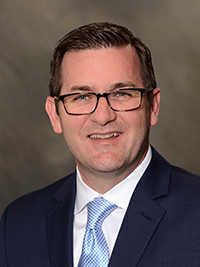When movement isn’t movement: A wake-up call for healthcare finance professionals I HFMA

The healthcare news that dominated the first week of this new decade was not particularly flattering.
A New Year’s Day headline in The Wall Street Journal put it bluntly: “Hospitals Merged. Quality Didn’t Improve.” Wow. Similar stories appeared across all industry news outlets, including HFMA Daily. The source of the reports was recent research published by The New England Journal of Medicine.
If you’ve followed along during what is now my ninth month as Chair of HFMA, you’re familiar with my Dare You to Move theme. Here in these columns and in my presentations at HFMA events around the country, I’ve communicated extensively about taking courageous steps to stop talking and start walking. I’ve talked about fear and failure and harnessing both. I’ve talked about breaking the old way to allow you to move to the new. Movement just to move, however, is of little value.
The recent industry headlines call our attention to a prime example. Health system mergers made simply to protect the business of healthcare — the money — are insufficient and likely short-lived. So we can move and not achieve any movement. We can pat ourselves on the back for creating beautifully branded health systems, but if we haven’t improved quality, patient experience or cost of care, then to what end is it?
I’m an executive in an integrated health system, so this issue hits close to home. If these headlines cause you to go into denial or look for somewhere to place blame, then it probably is hitting close to home for you, too. We have collectively failed. Let’s admit it and get on with the work to fix it.
Not all the issues of quality, experience and cost, of course, are the exclusive domain of health system leaders. I can rationalize and even point to characteristics that have inhibited movement. Not that long ago we were a cottage industry, and old habits die hard. There is a lack of industry consensus about what constitutes a valid quality measure. Incentives are misaligned, and healthcare payment methods in the U.S. drive much of that. I could go on, but it wouldn’t help move us toward a solution. Instead, I’d like to share a phrase I learned from Disney and their customer-first culture: “It’s not our fault, but it is our problem.”
So let’s put our energy into solutions, regardless of how or why we got here. And let’s start at HFMA, where our membership provides us with access to research, content and relationships that can help guide us to the solutions for these seemingly intractable problems. Working together, we can ensure that true movement is the end result of daring to move.





